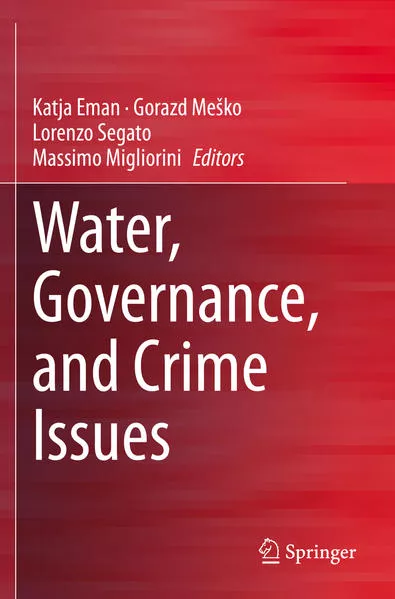
- Publikationen ca: 1
- Gefolgt von 1 Nutzern
- Fragen & Antworten
Eman, Katja
Katja Eman, Ph.D., is an Assistant Professor of Criminology at the Faculty of Criminal Justice and Security, University of Maribor, Slovenia. Her doctoral thesis was entitled Crimes against the environment - comparative criminology and criminal justice perspectives (2012), and she is the author of Environmental crime and criminology: crime phenomena and development of a green criminology in Slovenia (Scholar's Press, 2014). She participated in a research on water crimes in Europe (2016-2017) and is currently a lead researcher in the EU research project SHINE on sexual harassment in nightlife city areas (2020-2022).
Gorazd Meško, Ph.D., is a Professor of Criminology at the Faculty of Criminal Justice and Security, University of Maribor, Slovenia. He was a lead editor of books entitled on Trust and Legitimacy in Criminal Justice: European Perspectives (Meško & Tankebe; Springer, 2015), Handbook on Policing in Central and Eastern Europe (Meško, Fields, Lobnikar & Sotlar, 2013) and Managing and Understanding Threats to the Environment (Meško, Dimitrijević & Fields; Springer, 2011). He participated in a research project on water crimes in Europe (2016-2017) and is currently a lead researcher in a national research project on safety and security in local communities (2019-2024).
Lorenzo Segato, Ph.D., holds a PhD in Criminology and is CEO of REACT – an Italian research centre on crime and corruption. His main fields of interest are corruption, organized crime, and environmental crimes, including water crimes. He has a long experience in research on criminal phenomena, impact assessment, evaluation of public policies, working for national and International organizations. He has experience in coordination of international research projects, including the EU funded Water Crimes project. His articles, book chapter and reports have appeared in international and peer-reviewed publications, and he has been speaker at many national and international conferences.
Massimo Migliorini is Senior Researcher, has a degree in chemical engineering (2003). Since 2005 he has worked at SiTI’s Security & Safety department, focusing his activities on risk assessment and impact assessment methodologies for strategic infrastructures (including cross-border contexts and cultural heritage). He has developed a profound knowledge and expertise in the field of risk assessment and security assessment, in particular against crimes and man-made attacks. He has specific knowledge of complex and networked systems, including cascading effects. Critical Infrastructures are another domain of expertise, with operations in the energy and water domain. He has played a central role in several projects funded by the EU (7FP, Alcotra, DG Home), such as SIAM, PICRIT, FORTRESS, PRODIGE and WATERCRIME. He actively works in two priority research subjects for SiTI: security of cultural heritage (museums, archaeological sites, artworks) against anthropogenic threats (including terrorism), and the use of the INSPIRE Directive for civil protection purposes at transboundary level. In 2018 he coordinated the European Project RESCULT devoted to enhance the capability of Civil Protection to prevent and mitigate impacts of disasters on sites of Cultural Heritage, through the realization of an integrated European Interoperable Database (EID). From 2018 he is coordinating the Data for Resilience Working Group of the European Scientific and Technology Advisory Group, set up by the European Commission (DG-JRC) and the United Nations (UNISDR) to promote the application of Sendai Framework for Disaster Risk Reduction Principles.

Water, Governance, and Crime Issues
This book provides an overview of crimes involving water, including pollution, illegal dumping, and supply chain disruption from a criminological perspective. It examines a multifaceted issue from a comparative policy perspective supplemented with individual case studies to provide insights on the magnitude of the problem as well as possible solutions and policy recommendations.